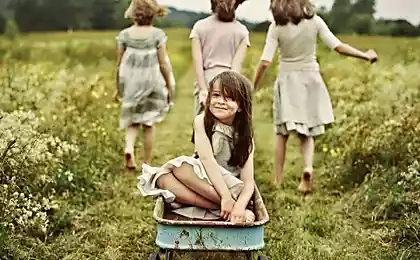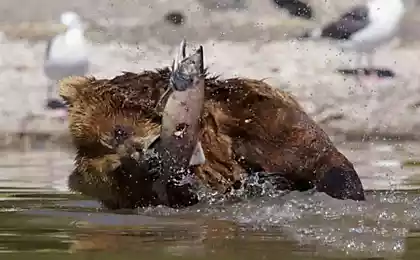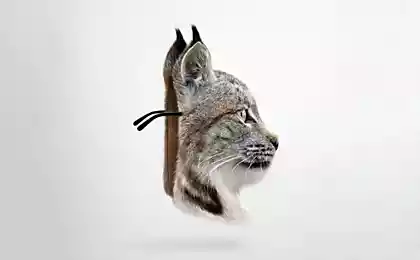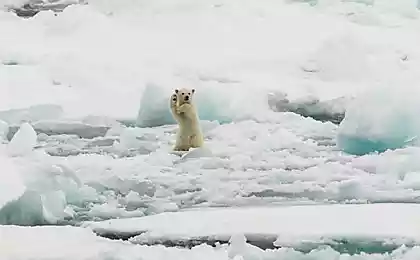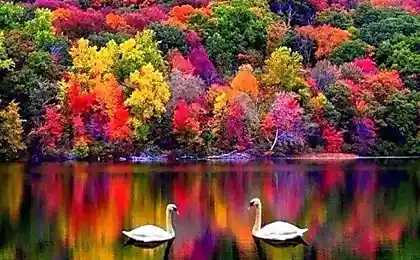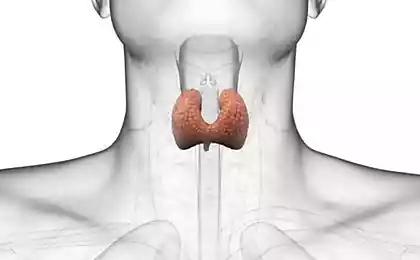486
How to live in harmony with nature
Most of us have already become urban residents perceive nature as a place to stay. And we are not just a part of nature, it is more and more dependent on us and suffer from our stupid, even criminal activities.
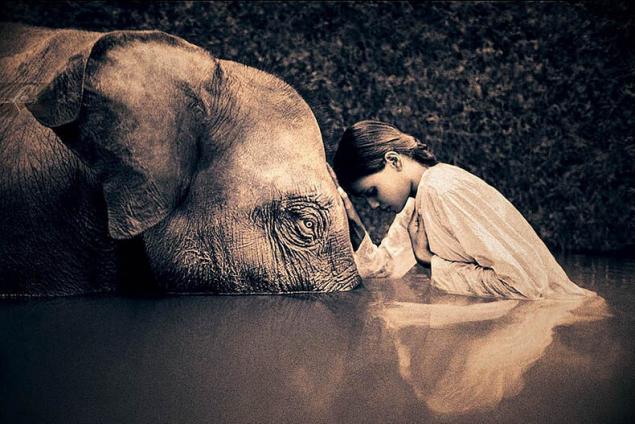
Do not forget that the damage to nature caused not only harmful emissions of production, mountains of garbage, pollution of rivers and seas, deforestation, destruction of animals and plants, but our weekend trips to barbecues or for mushrooms. Naturally, the harm to us divorced of the fire, commensurate with what "gives" nature chemical plant or a landfill for household waste, but it is still noticeable.
You ever notice how mother walking with child in Park, suddenly with a cry of "EW, that's gross," something diligently presses leg? The child is susceptible and will quickly learn that flying in the meadow, the butterfly is cute and beautiful, and that creeps beneath his feet, vile and not worthy of life. The lesson learned in childhood will last a lifetime: "I define what and who is worthy to live and grow on this earth."
In recent time nature often makes us understand that she is upset with our unwise activity: it will snow where it has never seen in Africa or South Asia, the rains will flood Europe, the drought left without the harvest of vast regions.

In recent years more and more people are beginning to understand that we must learn to live in harmony with nature, to obey the laws of ecology — the science of our common home. The term "ecology" was proposed in 1866 by the German scientist Ernst Haeckel, giving him definition as science of the relation of all life to the environment. In Greek "oikos" — house, home, residence, and "logos" — word, teaching.
We will not delve into scientific wilds, the essence of ecology can sum up in one short phrase — "man, do no harm." But, unfortunately, we harm a lot and sophisticated, doing the irreparable nature of the harm. We've used that every summer, the TV shows a lot of fires destroying thousands of hectares of forests. And most of the fire — the handiwork of man.
Unquenched cigarette butt or a piece of coal, a bottle of transparent glass, thrown on dry grass (magnifying glass effect) in the dry windy weather for a few minutes to turn a quiet green forest in a fiery hell, in which die weight of live.
Scientists estimate that 1 hectare of forest absorbs not less than 5 tons of carbon dioxide per year, highlighting at the same time, 10 tons of oxygen. For example, one hour hectare of forest will absorb all the carbon dioxide released in the breath of 200 people. Convincing figures, isn't it? And such examples are many.

Don't forget that in city parks and squares of living beings can be not much less than in the wild forest, but they are much more vulnerable and entirely dependent on human whim. Our ancestors long ago formulated the basic principles of human behavior towards nature. Let us and we will follow them.
Try not to keep wild animals at home. Turn them at home in most cases will not work. Most often your inept "care" for them is disastrous. If you decide to help a wild animal, think, and will you be able to do it without hurting him. In any case it is not necessary to bring from the forest grown Chicks or young animals. In the vast majority of cases they are not abandoned by their parents, parents are busy looking for food.
You should not come nearer to animal burrows and bird nests, if they are young, which usually gives themselves squeak. If your dog is badly brought up, in the spring and early summer don't let her off the leash in the Park, the woods, on waste grounds, where there may be bird nests or young of wild animals. Try not to create during this period the excess noise that scares birds and animals. The cubs, who failed to escape after adults can get lost and die.
And take good care of the smallest inhabitants of the forest. Don't tear off the web, just go around them. Don't destroy the nests and do not step on the ant trail. Do not overturn stones, snags, old logs, don't break mossy stumps. Under them and in them lives a large number of living beings. Want to see this, sit down for a while on the sidelines. Steps caused your anxiety will subside, and kick crawl lizard, zaspeshat their business millipedes, beetles will appear, fussed of a bird, and out of his hole mouse — the forest will heal their normal lives.

For nature, all living beings are important and necessary, everyone has their own niche and complex relationships with others. Among them, "vile and nasty", so no need to push anyone, anyone to come. Frightening in view of the hairy caterpillar tomorrow will turn into a beautiful butterfly and will pollinate the flowers.
Try without the need not to disturb the forest soil. Don't forget that the passing car wheels condenses, leading to death of many living beings. Don't bring forest use and exhaust emissions. Walking through the woods, preferably on existing trails, not paving without the need for a new one. If you go on the road, try not to break and not to trample plants.
No need to pluck plants, to just to admire them. It is enough to lean towards the flower, which in the natural environment will always look better than you have in your hands. If there is a need for plants to thwart, for example, when collecting herbs, do not start a "weeding-out", tear them a little in different places, trying not to harm other plants.
Gathering mushrooms, berries, nuts, try not to cause unnecessary harm to nature. You don't destroy everything around to get to a desired mushroom or berry brush. Do not pluck all the berries and nuts to a man, except of you there is still a lot of people reckon. Do not forget that in nature all plants need, and this also applies to the toadstools and pale toadstools and mushrooms-tinder funguses.
By the way, the collection of our beloved birch juice is not harmless to the trees. To refuse this delicacy is hard, but don't overdo it, and wounds on birches surely cover, best garden pitch, it is possible and common clay.

It is clear that the harm that can cause the specific nature of the tourist, hunter or mushroom, usually small, but you should try to minimize it to the limit. The nature generously shares with us his gifts, but waits and treated with care and concern. Do not forget the words of Antoine de Saint-Exupery: "We are all... on the same planet — we are all the crew of one ship."published
P. S. And remember, only by changing their consumption — together we change the world! ©
Join us in Facebook , Vkontakte, Odnoklassniki
Source: gazeta.bytdobru.info/statya/5283-kak-zhit-v-garmonii-s-prirodoi

Do not forget that the damage to nature caused not only harmful emissions of production, mountains of garbage, pollution of rivers and seas, deforestation, destruction of animals and plants, but our weekend trips to barbecues or for mushrooms. Naturally, the harm to us divorced of the fire, commensurate with what "gives" nature chemical plant or a landfill for household waste, but it is still noticeable.
You ever notice how mother walking with child in Park, suddenly with a cry of "EW, that's gross," something diligently presses leg? The child is susceptible and will quickly learn that flying in the meadow, the butterfly is cute and beautiful, and that creeps beneath his feet, vile and not worthy of life. The lesson learned in childhood will last a lifetime: "I define what and who is worthy to live and grow on this earth."
In recent time nature often makes us understand that she is upset with our unwise activity: it will snow where it has never seen in Africa or South Asia, the rains will flood Europe, the drought left without the harvest of vast regions.

In recent years more and more people are beginning to understand that we must learn to live in harmony with nature, to obey the laws of ecology — the science of our common home. The term "ecology" was proposed in 1866 by the German scientist Ernst Haeckel, giving him definition as science of the relation of all life to the environment. In Greek "oikos" — house, home, residence, and "logos" — word, teaching.
We will not delve into scientific wilds, the essence of ecology can sum up in one short phrase — "man, do no harm." But, unfortunately, we harm a lot and sophisticated, doing the irreparable nature of the harm. We've used that every summer, the TV shows a lot of fires destroying thousands of hectares of forests. And most of the fire — the handiwork of man.
Unquenched cigarette butt or a piece of coal, a bottle of transparent glass, thrown on dry grass (magnifying glass effect) in the dry windy weather for a few minutes to turn a quiet green forest in a fiery hell, in which die weight of live.
Scientists estimate that 1 hectare of forest absorbs not less than 5 tons of carbon dioxide per year, highlighting at the same time, 10 tons of oxygen. For example, one hour hectare of forest will absorb all the carbon dioxide released in the breath of 200 people. Convincing figures, isn't it? And such examples are many.

Don't forget that in city parks and squares of living beings can be not much less than in the wild forest, but they are much more vulnerable and entirely dependent on human whim. Our ancestors long ago formulated the basic principles of human behavior towards nature. Let us and we will follow them.
Try not to keep wild animals at home. Turn them at home in most cases will not work. Most often your inept "care" for them is disastrous. If you decide to help a wild animal, think, and will you be able to do it without hurting him. In any case it is not necessary to bring from the forest grown Chicks or young animals. In the vast majority of cases they are not abandoned by their parents, parents are busy looking for food.
You should not come nearer to animal burrows and bird nests, if they are young, which usually gives themselves squeak. If your dog is badly brought up, in the spring and early summer don't let her off the leash in the Park, the woods, on waste grounds, where there may be bird nests or young of wild animals. Try not to create during this period the excess noise that scares birds and animals. The cubs, who failed to escape after adults can get lost and die.
And take good care of the smallest inhabitants of the forest. Don't tear off the web, just go around them. Don't destroy the nests and do not step on the ant trail. Do not overturn stones, snags, old logs, don't break mossy stumps. Under them and in them lives a large number of living beings. Want to see this, sit down for a while on the sidelines. Steps caused your anxiety will subside, and kick crawl lizard, zaspeshat their business millipedes, beetles will appear, fussed of a bird, and out of his hole mouse — the forest will heal their normal lives.

For nature, all living beings are important and necessary, everyone has their own niche and complex relationships with others. Among them, "vile and nasty", so no need to push anyone, anyone to come. Frightening in view of the hairy caterpillar tomorrow will turn into a beautiful butterfly and will pollinate the flowers.
Try without the need not to disturb the forest soil. Don't forget that the passing car wheels condenses, leading to death of many living beings. Don't bring forest use and exhaust emissions. Walking through the woods, preferably on existing trails, not paving without the need for a new one. If you go on the road, try not to break and not to trample plants.
No need to pluck plants, to just to admire them. It is enough to lean towards the flower, which in the natural environment will always look better than you have in your hands. If there is a need for plants to thwart, for example, when collecting herbs, do not start a "weeding-out", tear them a little in different places, trying not to harm other plants.
Gathering mushrooms, berries, nuts, try not to cause unnecessary harm to nature. You don't destroy everything around to get to a desired mushroom or berry brush. Do not pluck all the berries and nuts to a man, except of you there is still a lot of people reckon. Do not forget that in nature all plants need, and this also applies to the toadstools and pale toadstools and mushrooms-tinder funguses.
By the way, the collection of our beloved birch juice is not harmless to the trees. To refuse this delicacy is hard, but don't overdo it, and wounds on birches surely cover, best garden pitch, it is possible and common clay.

It is clear that the harm that can cause the specific nature of the tourist, hunter or mushroom, usually small, but you should try to minimize it to the limit. The nature generously shares with us his gifts, but waits and treated with care and concern. Do not forget the words of Antoine de Saint-Exupery: "We are all... on the same planet — we are all the crew of one ship."published
P. S. And remember, only by changing their consumption — together we change the world! ©
Join us in Facebook , Vkontakte, Odnoklassniki
Source: gazeta.bytdobru.info/statya/5283-kak-zhit-v-garmonii-s-prirodoi
Kate Harding: I gave up dieting and accept your body
How to make the muscles of the hands and feet elastic and toned


